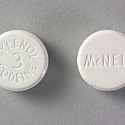Alcohol and nicotine — an addictive link
Before you take your next drink or smoke that cigarette, consider this: alcohol and tobacco are among the top causes of preventable deaths in the United States. It’s not surprising that these substances are often used together. In fact, the results of the National Institute on Alcohol Abuse and Alcoholism’s 2001-2002 National Epidemiologic Survey on Alcohol and Related Conditions, one of the largest co-morbidity studies ever conducted, revealed that people who are dependent on tobacco are four times more likely than the general public to be dependent on alcohol. People who are dependent on alcohol are three times more likely than those in the general population to be smokers. Statistics indicate that more alcoholics die of tobacco-related illnesses (cancer, lung disease and heart disease) than die of alcohol-related problems.
Alcohol and tobacco use lead to major health risks when used alone. When combined, alcohol and tobacco dramatically increase the risk of certain cancers of the mouth, throat and liver.
Why are tobacco and alcohol co-use so common? Both are legally available and easily obtained. Recent research also suggests that common genetic factors may make people more vulnerable to both alcohol and tobacco addiction. Consuming alcohol and tobacco together increases the pleasure users experience from either drug alone. Nicotine has been found to increase the craving for alcohol; the number of cigarettes a person consumes rises in tandem with the number of drinks consumed. Smoking is also a behavioral trigger for drinking. Smokers drink twice as much alcohol as non-smokers, and their risk of drinking too heavily is also twice that of non-smokers. While the percentage of smokers has dropped to 30 percent of American adults, it is unchanged among alcoholics.
When a person must consume more of a substance in order to achieve the same rewarding effect, the body has developed “tolerance.” “Cross-tolerance”, that is when tolerance to one drug confers tolerance to another, has also been documented in people who smoke and drink.
These findings have challenged the previously held belief that it is too hard to quit both alcohol and nicotine addiction as the same time. Smoking cessation does not cause abstinent alcoholics to relapse, but may actually decrease the likelihood of relapse, since nicotine is both a behavioral and biochemical trigger for alcohol use. Consequently, the treatment community is moving towards simultaneous interventions to address alcohol and nicotine addiction. Combinations of motivational counseling, nicotine patches/medications, and behavioral therapies have proven effective.
Cost of addiction
Any smoker will tell you tobacco use is expensive. In one year, the cumulative tax alone for someone smoking a pack a day ($2.75 x 365 days) amounts to $1,003.75. That’s a lot of gas, groceries, movies, dinners, etc. When combined with the cost of 365 packs of cigarettes, it could help finance a vacation. It costs in other ways too, not just in health care expenses, but in life insurance premiums. According to the Consumer Federation of America, a smoker pays twice the price a non-smoker pays for life insurance.
Take a moment and evaluate what it really costs you to light up. If you are in recovery, consider talking to your health professional about options for quitting.
_________
source: The Ithaca Journal, http://www.theithacajournal.com



